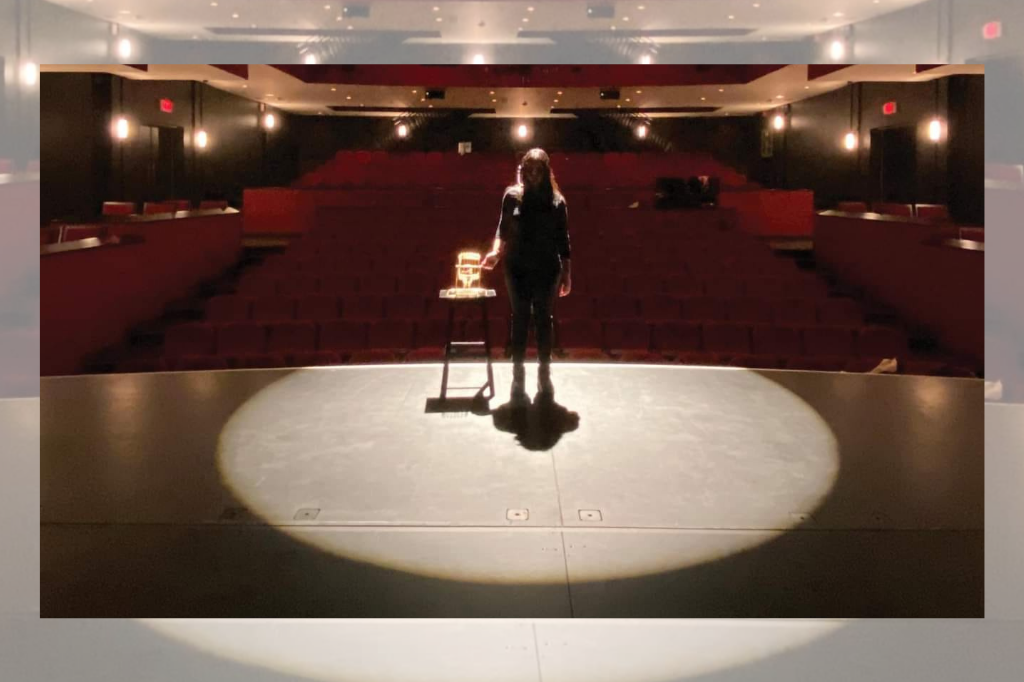REVIEW: Everybody at Theatre@York
American playwright Branden Jacobs-Jenkins sure seems to be having a Canadian moment, eh?
ARC produced Gloria last month in association with Crow’s Theatre. The National Theatre School of Canada used Everybody as their Class of 2021 capstone production, and Shaw’s featuring it in their programming this summer.
Theatre@York seems to have caught the Jacobs-Jenkins bug, too, as evidenced by their extremely amusing take on Everybody, happening in the lovely and large Sandra Faire and Ivan Fecan Theatre. The play is an adaptation of a fifteenth-century morality play — godliness good, self-righteousness bad, per the original Everyman — and includes in its dramaturgy an element of mystery and surprise. Each night, several main characters (Stuff, Friendship, and Love, for instance) are cast by lottery at the top of the show: there are over one hundred possible versions of this production, which is pretty remarkable.
In the version I saw, Tito Vallarino played Everybody, Anton Ling played Love, Jordan Jerry Kuper played Friendship, Pyper Johnston played Stuff, Trinity Lloyd played Kinship, and Tuna Gümeli played Cousinship. Rounding out the onstage cast were Miranda Brown-Matthews as Death and Marianna Kokkinos as Usher/God. This is a cast of fourth-year theatre students who navigate a challenging text with dexterity and wit — Johnston and Lloyd’s timing, in particular, is dead-on, coaxing full-on laughter from a text which might be better described as ‘quirky’ than laugh-out-loud ‘funny.’
Director Courtney Ch’ng Lancaster has worked with the York University theatre and dance departments beautifully, reserving a moment of Jacobs-Jenkins’ play for the appearance of a full-on flash mob: it’s a surprising choice but it works, reinforcing the play’s ideas of community and togetherness through choreographed moments of chorality. (The audience, too, seemed to love the sudden departure from prosaic nihilism to backflips and The Worm.) Lancaster’s production perfectly walks the line between staging Everybody as an educational exercise and positioning it as a professional production. It’s clear students will carry elements of this production with them well into their careers — poor Vallarino’s sprinted laps around the auditorium will surely concretize into Theatre@York mythology — but the production lands on its own merit, too. Fearing death, feeling lonely, pleading for more time — those are universal themes, and the Theatre@York team amplifies them well.
It’s a fun production and well worth making the trek to Keele: the night I attended seemed to have some troubles with sound, namely in some sort of maddening mic feedback for the first half of the show, but that subsided by curtain, allowing Michael Reynolds’ sound design to shine. The set, designed by Erin Dagenais, is simple but efficient, and, to the joy of theatre students everywhere, yes, features a fog machine.
You may not leave this production feeling any more certain about what happens when we die than you did when you arrived, but hey — you’ll have seen some young artists experimenting with their craft and you’ll have laughed doing so. Surely that makes the inevitability of death an easier pill to swallow.
Everybody runs at Theatre@York through April 2. You can find out more here.















Comments